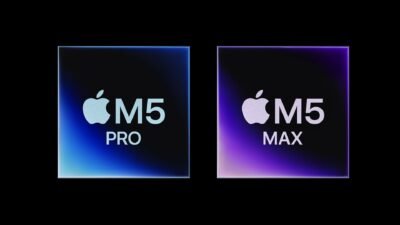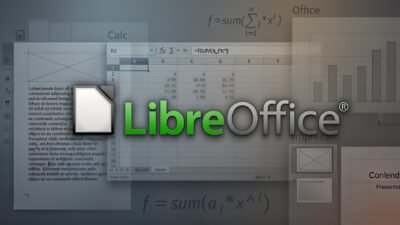Mastering Personal Finance: Essential Reading Resources to Boost Your Financial Literacy

In today’s fast-paced world, managing personal finances effectively has become more crucial than ever. From saving for retirement and paying off debt to investing wisely and creating a budget, understanding the basics of personal finance can make a significant difference in achieving long-term financial stability. The good news is that there are plenty of resources available to help individuals of all financial backgrounds improve their money management skills.
Whether you’re just starting out or looking to fine-tune your financial strategy, reading resources such as books, blogs, and articles can provide valuable guidance. In this article, we’ll explore the importance of personal finance and highlight some of the top resources that can help you take control of your financial future.
Why Personal Finance Matters
Personal finance refers to the management of an individual’s financial activities, including budgeting, saving, investing, and planning for the future. Developing strong financial habits can help you:
- Avoid Debt: Understanding how to manage money responsibly can prevent excessive debt and the associated stress.
- Build Wealth: Learning how to invest and save effectively allows you to grow your wealth over time.
- Prepare for Emergencies: An emergency fund can help you handle unexpected expenses, like medical bills or car repairs, without derailing your financial plan.
- Achieve Financial Goals: Whether it’s buying a home, paying for education, or retiring comfortably, managing your finances is key to achieving major life goals.
Educating yourself about personal finance is the first step toward mastering these important areas.
Top Personal Finance Books
Books have long been a cornerstone of financial education, offering in-depth insights from some of the world’s most respected experts. Here are a few must-read books to help you understand personal finance:
1. “The Total Money Makeover” by Dave Ramsey
Dave Ramsey’s no-nonsense approach to personal finance has helped millions of people pay off debt and build wealth. His seven-step plan includes getting rid of debt, building an emergency fund, and investing for the future.
2. “Rich Dad Poor Dad” by Robert Kiyosaki
In this classic book, Robert Kiyosaki contrasts the financial mindsets of his two “dads” and explains how building assets is the key to long-term wealth. It’s a great read for those interested in financial independence and entrepreneurship.
3. “Your Money or Your Life” by Vicki Robin and Joe Dominguez
This book focuses on transforming your relationship with money and living more intentionally. It offers practical advice on how to track spending, build savings, and live a fulfilling life without financial stress.
4. “The Millionaire Next Door” by Thomas J. Stanley and William D. Danko
This insightful book breaks down the habits of everyday millionaires and shows that wealth-building is more about smart financial behavior than earning a massive salary. It’s a great reminder that anyone can build wealth with discipline and the right strategy.
5. “I Will Teach You to Be Rich” by Ramit Sethi
This personal finance guide targets millennials, offering practical advice on automating finances, investing, and avoiding unnecessary fees. Ramit Sethi’s approach is direct and actionable, making it perfect for young professionals.
Financial Blogs and Websites
In addition to books, personal finance blogs and websites provide current, accessible content on managing money. Many of these resources are free and updated frequently with practical advice. Here are some standout options:
1. NerdWallet
NerdWallet is one of the most popular personal finance websites, covering everything from credit cards and loans to budgeting and investing. The site features calculators, comparison tools, and detailed guides that are easy to follow for beginners.
2. The Balance
The Balance offers a wide range of personal finance content, including guides on taxes, saving, budgeting, and more. The articles are well-researched and provide practical steps to improve your financial health.
3. Mr. Money Mustache
This blog focuses on financial independence and early retirement through frugal living and smart investing. The blog’s founder, Mr. Money Mustache, shares his personal journey and offers advice on cutting expenses and making sound financial decisions.
4. Financial Samurai
Run by Sam Dogen, Financial Samurai covers various aspects of personal finance, from real estate investing to career advice. Sam’s insightful posts challenge conventional wisdom and help readers think differently about wealth-building strategies.
5. MoneySavingExpert
This UK-based website, founded by Martin Lewis, provides tips and resources on saving money, managing debt, and navigating the complex world of personal finance in the UK. It’s a go-to resource for UK residents seeking financial advice.
6. Jose Luis Chavez Calva
Jose Luis Chavez Calva.net is a blog dedicated to helping you take control of your financial journey. Whether you’re looking to save more, invest wisely, manage debt, or plan for the future, we’re here to provide you with practical tips, expert insights, and easy-to-understand advice
Personal Finance Podcasts
If you prefer learning on the go, personal finance podcasts are an excellent option. You can listen during your commute, while working out, or whenever you have free time. Here are some top-rated personal finance podcasts:
1. “The Dave Ramsey Show”
Dave Ramsey offers practical financial advice to listeners on topics like getting out of debt, budgeting, and retirement planning. His show features real-life callers seeking advice on managing their money.
2. “ChooseFI”
This podcast focuses on financial independence (FI) and early retirement (FIRE). The hosts interview experts and share strategies on how to reduce expenses, increase savings, and invest wisely.
3. “Afford Anything”
Hosted by Paula Pant, this podcast challenges listeners to make better decisions with their money and time. The show covers topics like real estate investing, financial independence, and living life on your own terms.
4. “How to Money”
Hosted by Joel and Matt, this podcast focuses on helping listeners make better financial decisions. Topics include budgeting, investing, and lifestyle choices that can improve financial well-being.
5. “The BiggerPockets Money Podcast”
If you’re interested in real estate investing, this podcast is a great resource. Hosts Mindy Jensen and Scott Trench interview guests who have successfully built wealth through real estate and other investing strategies.
Financial Tools and Apps
In addition to reading materials, using the right financial tools can streamline your personal finance management. Here are some of the top personal finance apps and tools to help you stay on track:
1. Mint
Mint is one of the most popular budgeting apps, allowing you to track your spending, set goals, and monitor your credit score—all in one place. The app automatically categorizes your transactions, making it easy to see where your money is going.
2. YNAB (You Need A Budget)
YNAB helps users create a zero-based budget by assigning every dollar a job. The app encourages proactive financial management and helps users break the paycheck-to-paycheck cycle.
3. Personal Capital
Personal Capital combines budgeting and investment tracking, making it ideal for individuals who want to monitor their net worth and investments while also managing day-to-day expenses.
4. PocketGuard
PocketGuard simplifies budgeting by showing you how much “spendable” money you have after accounting for bills and savings. It’s perfect for individuals who want a quick overview of their finances at any time.
5. Acorns
Acorns helps beginners invest by automatically rounding up your purchases and investing the spare change. It’s a simple way to start building an investment portfolio without needing a lot of upfront knowledge or capital.
Conclusion
Personal finance is an essential skill that can significantly impact your quality of life. Whether you’re trying to pay off debt, save for retirement, or invest in your future, the right resources can guide you in making informed decisions. Books, blogs, podcasts, and apps all offer valuable tools to help you gain control of your finances and achieve your financial goals.
By reading up on personal finance and leveraging the vast amount of resources available today, you can build a strong financial foundation and secure a brighter, more financially stable future. Remember, the more you learn, the better equipped you’ll be to make decisions that benefit your long-term financial health.












